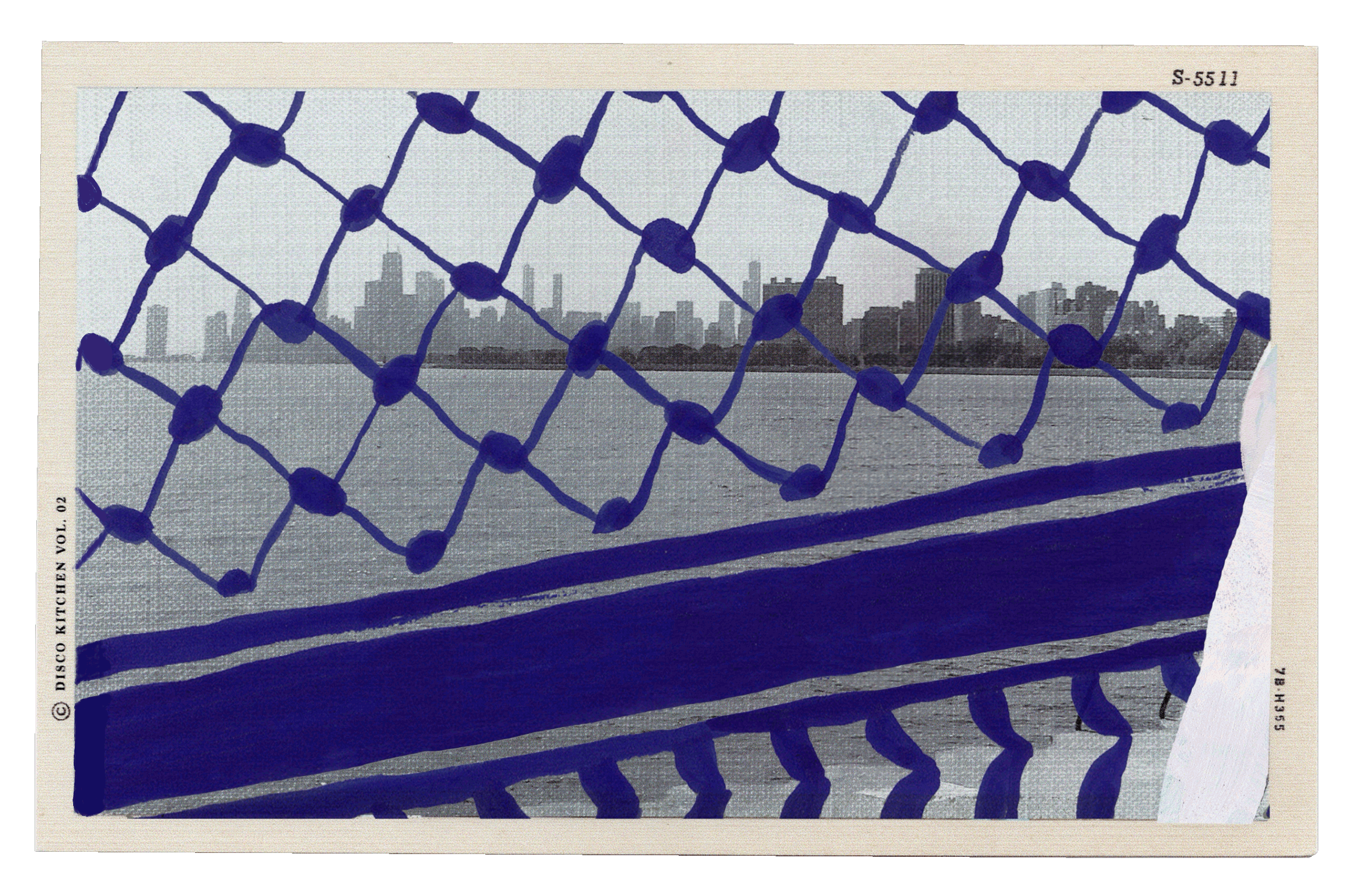CAN I CALL YOU HOME?
by Sylvia Ebeid
“My hope in the future generations, who are not born yet, they are the ones who will liberate Palestine
This is my hope
I never lose hope”
- Ibrahim Ebeid
It had been a bit over a month since I had returned from my three-month trip to Greece; the January sun taunting me. The loneliness of living without my community remained—I was attempting to sit with all of my discomforts and distortions that came to the surface when I was away. I, along with the rest of the world, was watching the utter destruction of Gaza. I had grown up hearing stories from my Sido of his childhood in Palestine and his passion for the liberation of our people. I had so much grief and anger, and unlike him, I felt as though I had nowhere to put it all. To cope, I formed a love of running, and as I was trotting along the river path just after the sun rose, which was casting a golden light on a dull atmosphere, I was pulled to a halt. Exhaustion had not caught up to me yet, but my mind had. Despite the bitter cold, there was a softness that hung in the air—goosebumps mingled with sweat. I wanted to remain there a bit longer, needing to linger in that contradiction. After carefully picking a rock at the river's edge, I sat. The water was practically still, only mirroring the slight sway of the trees above or responding to the continuous paddle of the ducks floating by. My mind wandered beyond this scene. To inconsistencies that riddled my frame, insecurities flooded in, unsure if love will stay. Trying to decipher why fear propels me to be so stagnant. As my fingers were once mindlessly tracing a nearby stone, I am struck by a divot. This stone is no longer a stranger but a match of my Sidos hands, ones that have been transformed by time. The stone quickly heated up in my tight grasp as I quickly tried to memorize every crack and difference. Testing my memory to see if I truly knew who I was reaching for.
I'm not sure I'll know the home that he speaks of so fondly. He travels there often in memory, making meaning of the way the world keeps churning. Homes get flattened, people are scattered, food is scarce. His hands can't hold it all, and I don’t see what he sees. There are aspects to him that I've never understood. Yet when his hand reaches for mine, the meaning of his action multiplies. It feels as though he has transformed me, that I have become something
greater than myself—an extension of Palestine. Here he is reaching for home again, hoping for a return. He grasps at the thought that one day I might taste a Jaffa orange. That I could rest my head on the land that he visits daily. I see the ways his eyes dance as he travels back home. The way his words crash with the sea. Do others see the same in me? Or has displacement transformed our blood as well? My gaze was fixed on the water, but I didn’t dare to hover any closer. I couldn’t bear any lack of recognition.
Winter air can bring clarity. Something to do with the cold—while harsh—rattles me into reality. The frost beckons everything to slow down—including me. I look at ducks in pairs nearing the river's edge, and I'm not sure how fleeting it is. I cannot ask forever of anything, impossibilities are hard to bend. Yet it is through the temporary where hope is formed. My Sido is filled with so much hope. He has hope embedded in me, but does he know how to find me? He can’t see how my feet second-guess themselves. These feelings are beyond someone so certain. I lie with honesty; I have never admitted to him how well I know despair. I fiddle with what I know of his mind in an attempt to forge a middle ground. We connect in ways that are once in a lifeline. He can put a name to a loneliness that we share. He understands our family's humanity. Yet, he does not bother himself with my life, at least not in any way that anyone else has. My Sido does not know most of me. But when I reach for him, I’m met with Palestine. Tangled by memory, raw and ever present. Palestine is so sure, how can I come from such certainty? I drift, again, enmeshed with various ideas of improbable futures. I can feel so distant from it all—swirling with feelings that I can never seem to verbalize. I could get up and run, keep shuffling my feet mile by mile, but I feel their doubts. They won’t know home, will they?
There are endless expectations, a pressure that is built upon itself by the generations. Palestine will be free. Our people will return to our homes. Our culture will no longer be extracted in the name of colonial violence. We will honor all our martyrs. The wounds that have
been passed down will heal as the olive trees sprout new branches. I will live in a world where my Sido and I won’t speak in code. Where us exchanging “I love you” is not informed by everything we cannot love. I will see what he calls home, and maybe then, once we are there together, he can see why I call him home.
Sylvia Ebeid is a proud Chicagoan exploring their life and experiences through writing. She is interested in grief as resistance, philosophy, and Queer theory. She enjoys cappuccinos and attempting to be radicalized by optimism.


